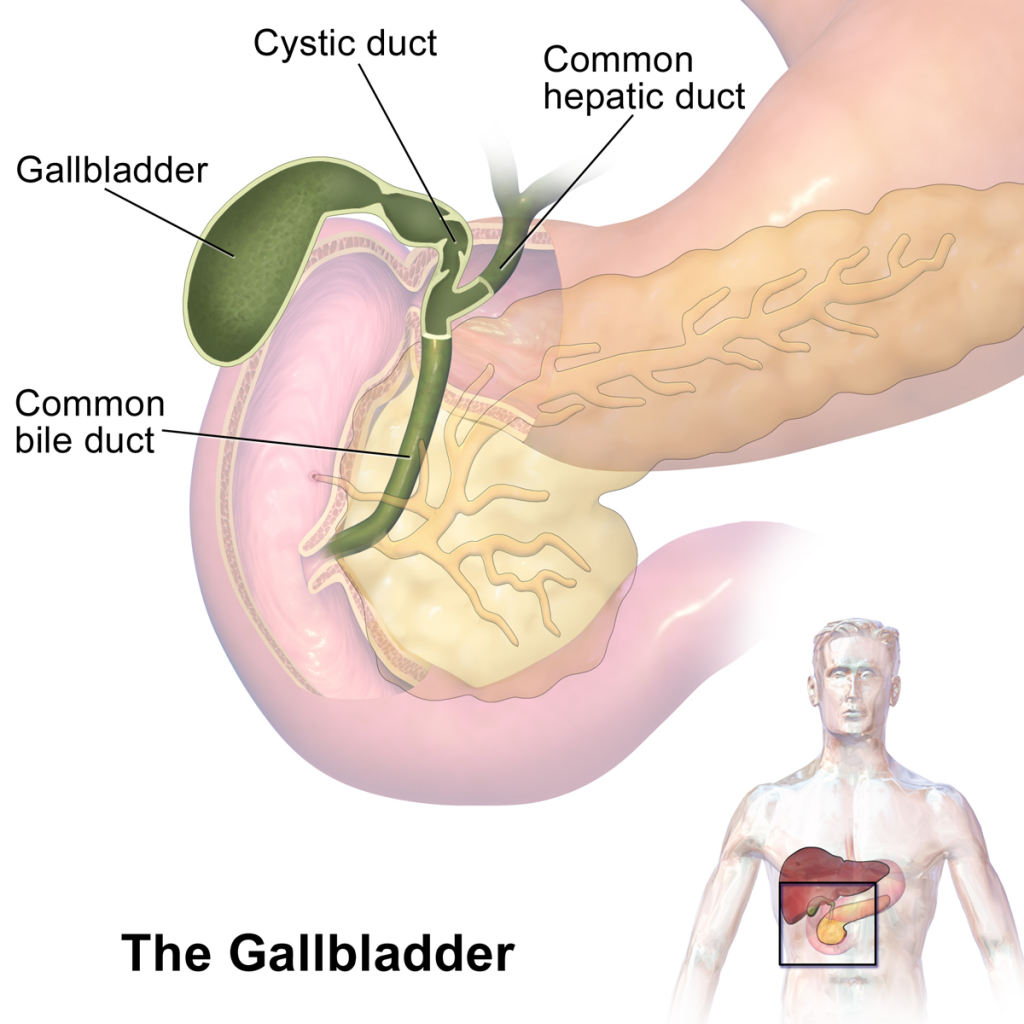Gall Bladder Symptoms and Risk Factors

Gallbladder attack symptoms will be discussed in the following article. Most people do not know that gallbladder attacks are pretty standard. Gallstones usually cause these episodes. However, gallstones can be asymptomatic for years. That is why many people don’t even know they have gallstones.
Once the stones grow more extensive, the symptoms will start occurring. In some cases, gallstones can lead to severe complications that can require gallbladder surgery. Let us find out more about gallbladder attacks and the most common symptoms.
The gallbladder is located near the liver. The primary function of this organ is to concentrate bile produced in the liver. When you eat some foods, the bitterness will be released into your intestines to facilitate digestion processes. Bile is critical, especially for the digestion of fatty foods. Bile flow can be obstructed if gallstones get stuck inside the bile duct. This can cause problems. We will tell you about these problems, and you will learn more about the most common symptoms of a gallbladder attack.
As we said, most gallbladder problems are related to gallstones. These stones can differ, depending on their composition and size.
We can divide them into several groups:
- Mixed stones
- Pigment stones and
- Cholesterol stones
Some stones are tiny, while others can be pretty large. Once the stones become more prominent in size, the symptoms will start occurring.
Mild pain in the abdomen, located on the right side, is one of the most common symptoms of gallstones. The pain can also spread to your right shoulder. Sometimes, this pain can become severe and last for hours.
Fever is also likely to occur in some cases. This usually happens when the stones get stuck inside the bile duct.
Jaundice is another symptom of gallbladder disorder. This condition is characterized by yellowing of skin or eyes. If this happens, contact your doctor immediately.
Gallstones can cause pancreatitis and various infections of the gallbladder. To prevent these complications, you will have to visit your doctor as soon as possible.
Sudden pain in the abdomen can be a sign of a gallbladder attack.
Some of the symptoms are pretty unspecific, and they can be caused by something else; however, if you experience any of the symptoms, you need to visit your doctor at once.
The Symptoms of Gallbladder Attack
- Pain (which can be mild to severe, located under your ribs, on the right side)
- Nausea
- Gas
- Queasiness
- Pain in the upper abdomen (also known as biliary colic)
- Belching
- Vomiting
- Pain in the right shoulder
- Burping
Attacks are more probable during the night and after having a meal high in fats. The pain can get worse when you take a deep breath. Gallbladder attacks can last for hours. If you experience any of these symptoms, contact your doctor immediately.
Other symptoms of gallbladder problems include:
- Bloating
- Constipation
- Nausea
- Burping
- Dizziness
- Headache
- Belching
- Gas
- Stools can change color and become lighter
- Indigestion
- You may start having pain in the right shoulder
- Pain under your ribs is one of the common symptoms. It is located on the right side.
- Diarrhea
As you can see, these symptoms are usually caused by gallstones. Once a gallstone blocks the bile duct, you can start having such symptoms. It would be best if you did not ignore any of the symptoms mentioned above.
Gallbladder Risk Factors
Gallbladder problems can be successfully treated if diagnosed in time. Sometimes, it is hard to diagnose gallstones simply because they do not always show symptoms. This is what we call ‘silent stones.’
Gallbladder disorders can lead to other complications, and gallbladder surgery is sometimes the only treatment for such problems.
The risk factors for gallbladder disorder include:
- Rapid weight loss
- Hypothyroidism
- Low-Calorie Diet
- Chronic Heartburn
- Too many fats in the diet
- Low stomach acid
- Food allergies
- High triglycerides
- Diabetes
- Hashimoto’s Disease
- Alcohol intake
- Antacids
- Being overweight
- Heredity
- Ethnicity
- High LDL cholesterol
- Immunosuppressive medications
- Decreased HDL cholesterol
- Medications for decreasing cholesterol levels in the blood
- If you are over 40, you may be at risk
- If you are a woman, you may be at risk
Trending Health Topics
- ADHD
- Allergies
- Arthritis
- Bipolar Disorder
- Bunions
- Car Accidents
- Chron's Disease
- Common Cold
- COPD
- Depression
- Dry Skin
- Dry throat
- Eczema
- Fungal Infection
- GERD
- HIV/AIDS
- Hypertension
- Irritable Bowel Syndrome (IBS)
- Multiple Sclerosis
- Osteoarthritis
- Psoriasis
- Rheumatoid Arthritis
- Skin Disorders
- strep throat
- Type 2 Diabetes
- Uncategorized